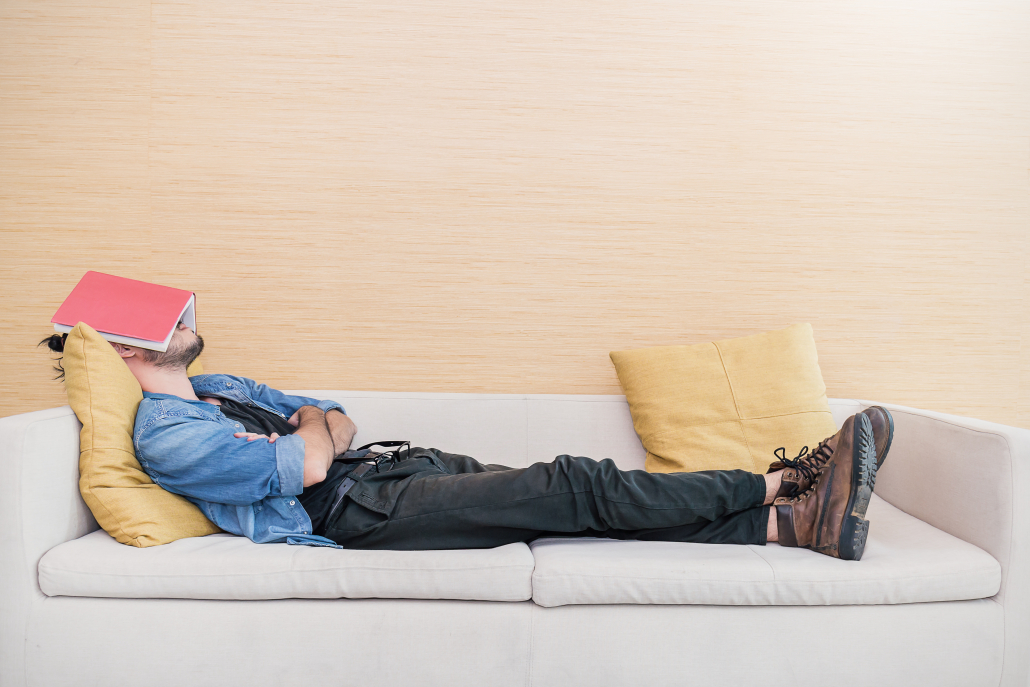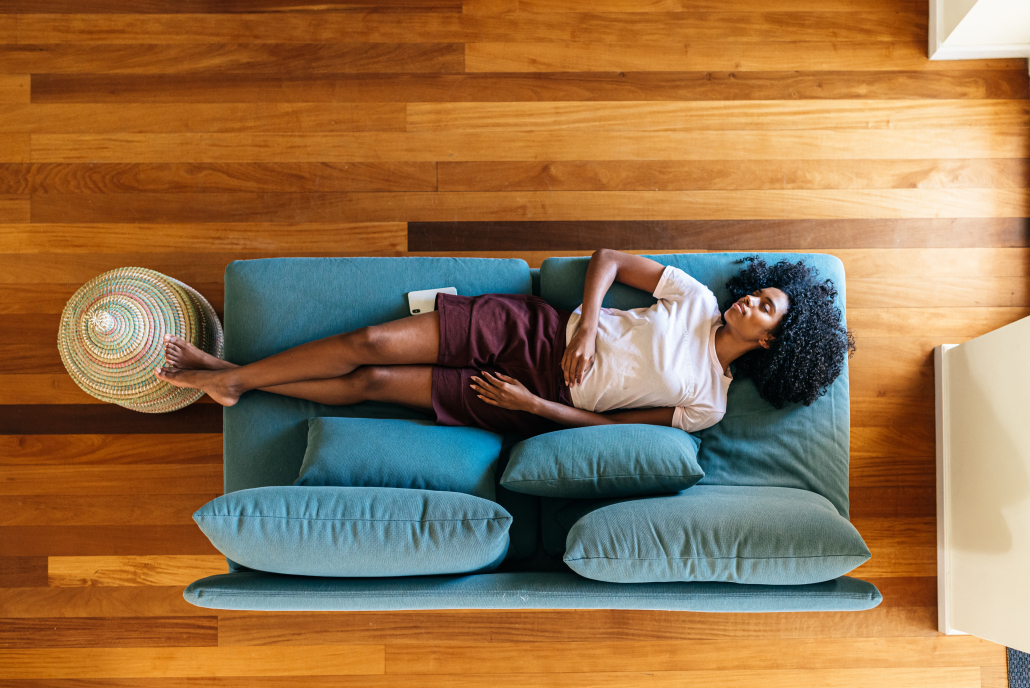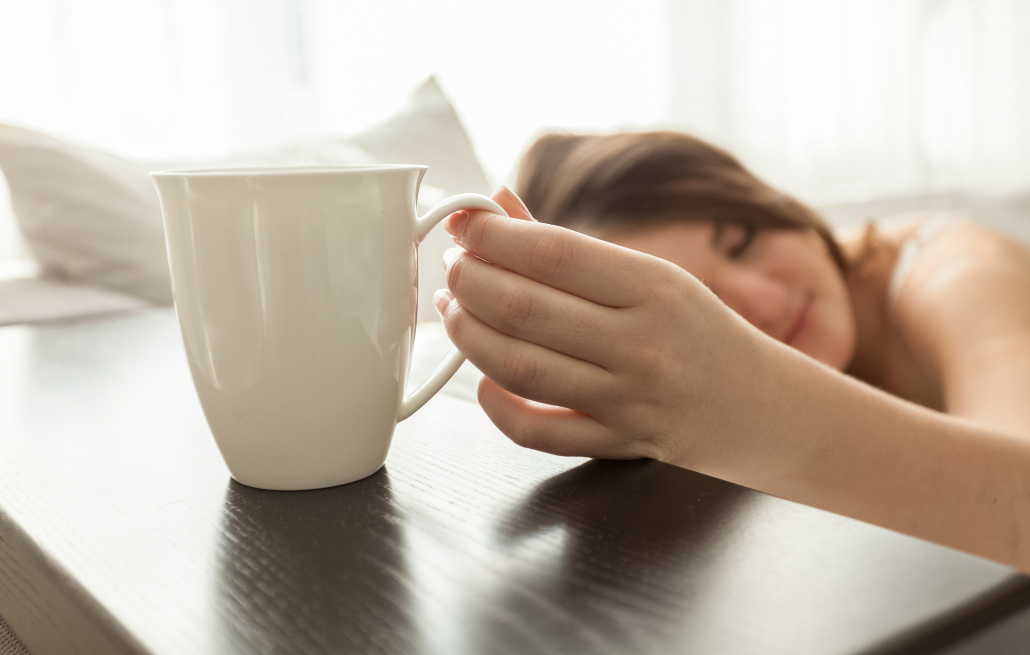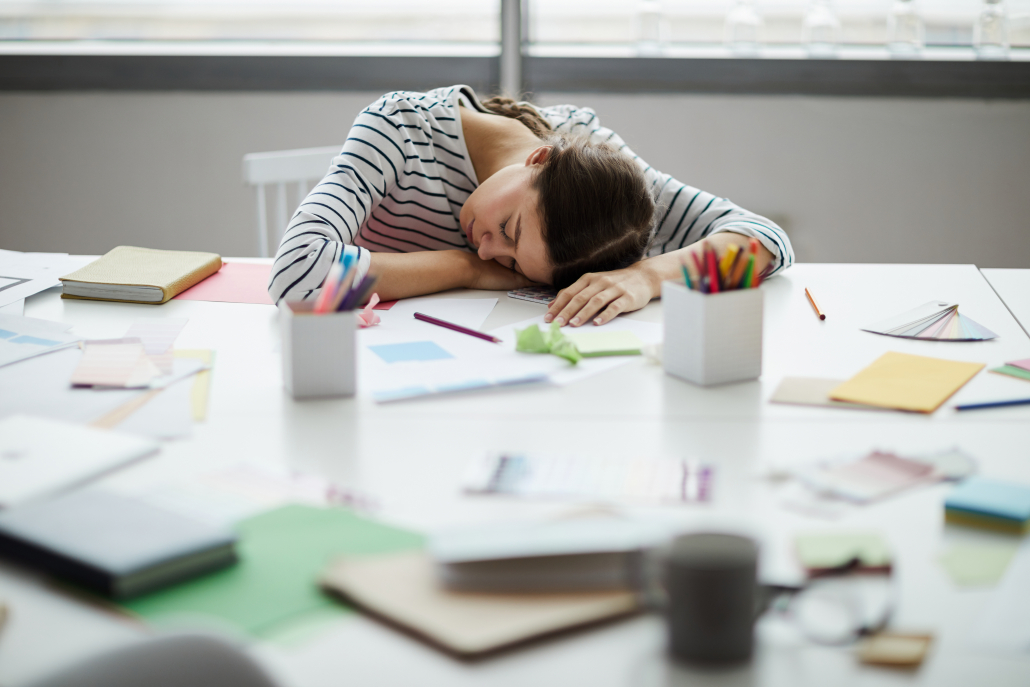We include products in articles we think are useful for our readers. If you buy products or services through links on our website, we may earn a small commission.
20 Minute Nap: Health Benefits and More

Power naps have been shown to improve cognitive performance, revive alertness, and boost mood [1]. The key to getting these benefits of napping is keeping them short. The 20 minute nap is one of the most effective approaches.
Napping for longer than 20 minutes risks going to deep into the sleep cycle, which can result in feeling more tired and groggy, rather than rested.
Table of Contents
20 minute Nap vs. Deep Sleep
With a 20 minute nap you will enter into the first two stages of the sleep cycle. There are five total stages of the sleep cycle that repeat every 90 to 110 minutes [2].
In the deeper sleep states your brain enters into states that make it less responsive to the outside world, and therefore harder to wake up. Interrupting the sleep cycle when you’re in a deeper sleep state will leave you groggy and muddled.
If you do have the time for a full 90 minute sleep cycle, the benefits include better decision-making, along with increased vocabulary and direction recall, new neural connections in the brain, and more creativity when it comes to solving problems.
What is the Best Nap Length?
Though different nap lengths offer different benefits (and possible drawbacks), there have been studies attempting to determine the best nap length.
A 1995 study by NASA found that a 26-minute power nap resulted in the best greatest gains in productivity ( 34%) and alertness (54%) [3].
20 Minute Nap Benefits
20 minutes may not sound like a long time, but when we use it to catch up on zzz’s it can have a major impact on our quality of life. Let’s take a closer look at these benefits below.
Improved performance
Numerous studies show that short daytime naps, specifically those around 20 minutes can improve markers of performance such as [3][4]:
- Alertness
- psychomotor speed
- reaction time
A 1995 study in Sleep, compared the effectiveness of naps and caffeine. Researchers found that, “naps, in general, provided longer and less graded changes in performance, mood and alertness than did caffeine, which displayed peak effectiveness and loss of effect within about six hours”[5].
While combining caffeine and a 20 minute nap into a “coffee nap” can have even more powerful benefits for alertness.
A 1994 study found that power naps plus caffeine were effective for keeping surgeons alert for 24-hour shifts. But that caffeine or naps alone were not sufficient [7].
A 2007 study found that a 30-minute, post-lunch nap improved sprint times in sleep-deprived athletes. The researchers concluded that these short naps “improve alertness and aspects of mental and physical performance following partial sleep loss” [8].
Though these improvements were from 30-minute naps, it’s likely that similar improvements would be found with 20 minute naps. In both durations, the brain enters the same rejuvenating sleep stages.
Boosts Learning Ability
Numerous studies confirm the benefits of daytime napping for learning ability.
Short naps around 20 minutes, and no longer than 30 minutes have been shown to [8]:
- Improve memory
- Enhance focus
- Better retain information
- Help you learn new information directly after your nap
The boost to learning ability provided by naps is enhanced the more regularly you take naps.
A 2006 study found that frequent nappers scored higher on reading and retention tasks [9].
Improve Blood Pressure
Studies have found that napping may be as effective in lowering blood pressure as pharmaceutical drugs [10].
Better Mood
Napping during the day can improve your mood. Short naps boost energy levels and help get you over the afternoon slump. They’ve also been linked to increased positivity and better tolerance for frustration.
Side Effects of Napping more than 20 Minutes
Napping for more than 20 minutes can cause you to enter into states of deep sleep that are difficult to emerge from, resulting in ‘sleep inertia.’
Sleep inertia caused by waking up from long naps can make symptoms of sleep deprivation longer lasting and more severe.
Over-napping–between 30 and 60 minutes–can make it harder to sleep deeply in the night.
A 2015 meta-analysis of various studies found that naps shorter than 30 minutes decreased the risk of cardiovascular disease. But that the risk of cardiovascular disease and all-cause mortality gradually increased when napping between 30 and 45 minutes. And significantly increased when napping for 60 less than 90 minutes [11].
However, if you are dealing with sleep deprivation and have the time and space to take at least a full 90 minute sleep cycle nap, the risks subside and benefits return.
The Best Time to 20 Nap
Key to getting the benefits of a 20 minute nap is doing it at the right time of day.
Abiding by our body’s natural sleep cycle, the optimal time to nap is between 1 p.m. to 3 p.m.
Our bodies go through two types of resting periods in which we are most able to sleep. The first peak occurs after sunset, and the second takes place 12 hours after waking up [12]. This second peak corresponds with the post-lunch dip. Think of it as the nap zone.
Why Avoid Sleep Deprivation?
Though a 20 minute nap offers many benefits, it’s can’t make up for chronic sleep deprivation.
Not getting enough sleep causes many more problems than just lack of energy, decreased productivity and alertness, and low mood.
Sleep deprivation can result in:
- weight gain
- increased risk of heart disease
- High blood pressure
- Increased risk of diabetes
- Decreased libido and impairments of sexual function
- increased risk of accidents
- Poor memory
The 20 Minute Nap: The Takeaway
The 20 minute nap is a version of power napping that can offer numerous health benefits. For many people it’s the sweet spot that can be most easily fit in during a busy workday.
20 minute naps offer numerous benefits when it comes to alertness, physical performance, focus, mood, and markers of heart health.
The benefits of a 20 hour nap increase the more consistently you take daily naps, so consider adding 20 minute naps to your sleep hygiene routine today.
If 20 minutes is longer than you can manage, consider a micro nap!















